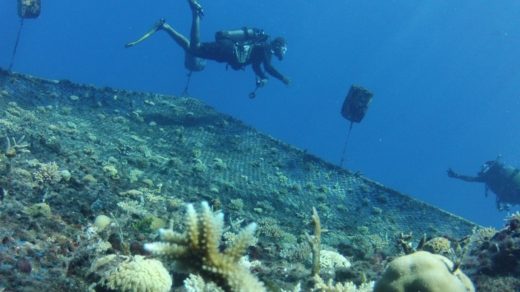The consequences of a nuclear winter will affect not only life on land and climate, they will also affect life in the ocean.
World leaders agree that there will be no winners in the case of nuclear water, so they are calling on countries to reduce nuclear weapons. However, the situation in the world is tense, especially against the backdrop of the war in Ukraine. In this regard, researchers from the University of Tasmania decided to simulate what the consequences of a nuclear winter would be for the world, and alas, the forecasts are disappointing.
Biogeochemist Dr. Tyler Rohr and colleagues used a mathematical model to model climate and life in the ocean and on land. In their work, they were based on the research of Carl Sagan. The scientists’ model assumes a nuclear war scenario between the US and Russia*, in which about 150 billion tons of soot from burning cities will reach the upper atmosphere.
Scientists warn that their model predicts dramatic climate change that will affect not only the land, but also the oceans.
Thus, according to scientists, the area of Arctic sea ice will increase by 50 percent, blocking coastal areas used for fishing, as well as major ports and trade routes throughout Europe. For example, sea ice is known to block major seaports such as Copenhagen in Denmark and St. Petersburg in Russia.
The study also shows that even in the event of a limited nuclear conflict between India and Pakistan, a staggering 27 to 47 billion tons of soot would be released into the atmosphere. The model predicts that even in this case, the amount of Arctic sea ice will increase enough to block critical ports throughout Northern Europe.
However, the consequences of a nuclear winter will affect not only life on land and climate, they will also affect life in the ocean. According to the study, a drop in ocean light and its average temperature will lead to the death of algae, which are an important link in the food chain of underwater life. Scientists warn that nuclear winter will affect the entire oceans, but the worst consequences will be experienced by high latitudes, including all of Europe, and especially the Baltic countries – here researchers are already recording a lack of ocean light.
Scientists suggest that the oceans will recover for hundreds of years – the model showed that even a return to the usual temperature and light will not return marine life to its pre-war existence. It is assumed that the sea ice will go into a new expanded state and will remain in this form for hundreds of years.



